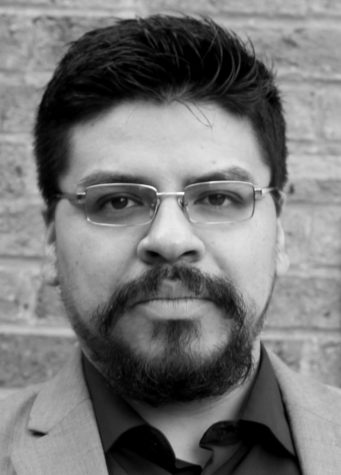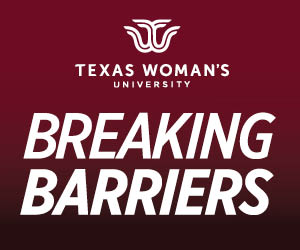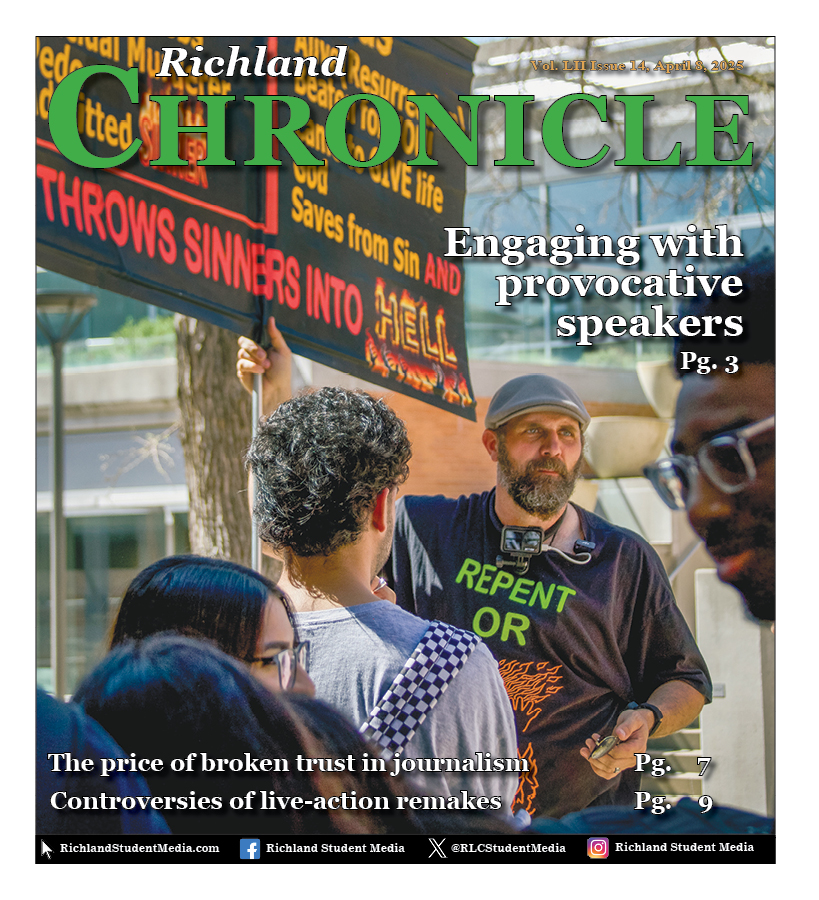Voting with class
History teacher takes class to vote
Professor Juan Olivares takes his students to vote at Guadalupe Hall.
November 10, 2022
When Juan Olivares’ students signed up for his class in U.S. history, little did they realize they might be helping to create it. Olivares is a history professor at Richland who decided to encourage some of his students to become participants in history. Therefore, he and one of his classes went to Guadalupe Hall to cast their votes.
“Being a history teacher, you are teaching the long history of how we got this political right so far in the 21st century. It took 200 years of activism, revolts [and] civil wars to get that political right, and what is going on in 2022? A lot of problems affect society, our politics. So what about if I provided an open space and opportunity for my students to make a big difference in this midterm election?” Olivares said.
Olivares gave students the opportunity to vote during his own class time.

“I’m aware that some students have, even with the early voting process, they do not have time because they are taking more classes, they work long hours, they need to study, they have their part-time jobs, some personal family matters that they need to attend, so I decided to open up a space for them to have that freedom, for them not to [feel pressured] to vote in a rushed manner. So, I am creating an open space, a free space for them to come in and cast their ballots,” Olivares said.
Students were welcome to head home early right after they voted and were even offered extra credit if they chose to vote.
Olivares only took one of his classes to vote. “The rest of my classes are dual credit classes, high school students. Unfortunately, they do not have that age [requirement].”
One student made the cut though. Dual-credit student James Bergsagal attends Olivares’ early morning class. He did meet the age requirement. When asked if he would have voted if Olivares did not bring him to vote, Bergsagal said “Yes. I already registered to vote before. I’m 18. I’m actually dual credit here.”
At the polls, two students in Olivares’ class, Taylor King and Denise Perry were initially unable to vote because they did not have valid forms of ID with them. When asked what motivated them to come back rather than go home, King said, “I was actually planning on voting anyway, so I thought ‘Why not get it out of the way?’ but yeah, that’s why I came back.”
Perry said “I don’t know. I mean I never voted before.” King said that Perry had missed out on voting in the last presidential election because she not yet 18.
Texas had one of the lowest early voting turnout rates compared to other states this year, especially among young people. Olivares recognized that reluctance to vote and hoped to change it by giving his students the opportunity. Olivares wanted his students to understand that their vote is important.
“Unfortunately the news networks, both liberal and conservative, the way that politics have been portrayed, I mean, especially in the last several years, those messages have been discouraging not only [to] a majority of Americans, the adult population too, but also young Americans. Because they ask themselves, ‘What would be the purpose of it at the end of the day?’ I’ve heard a lot of that because, unfortunately, politics in 2022 is so divided and politicized. So young Americans, at the end of the day, hear all these negative thoughts from both sides. That kind of narrative discourages people. We need to change that,” he said.
“We need to change that narrative. Little by little. So, I hope that with my little exercise of getting my class to vote, I might change the culture of how college students … perceive politics.”
Despite getting many students from his class to vote, Olivares chose not to vote because he had already made plans to vote with his family.
“That has become a tradition since all of us have become American citizens, going to vote as a family.” Olivares and his family voted in the midterm elections on the last day of early voting.




